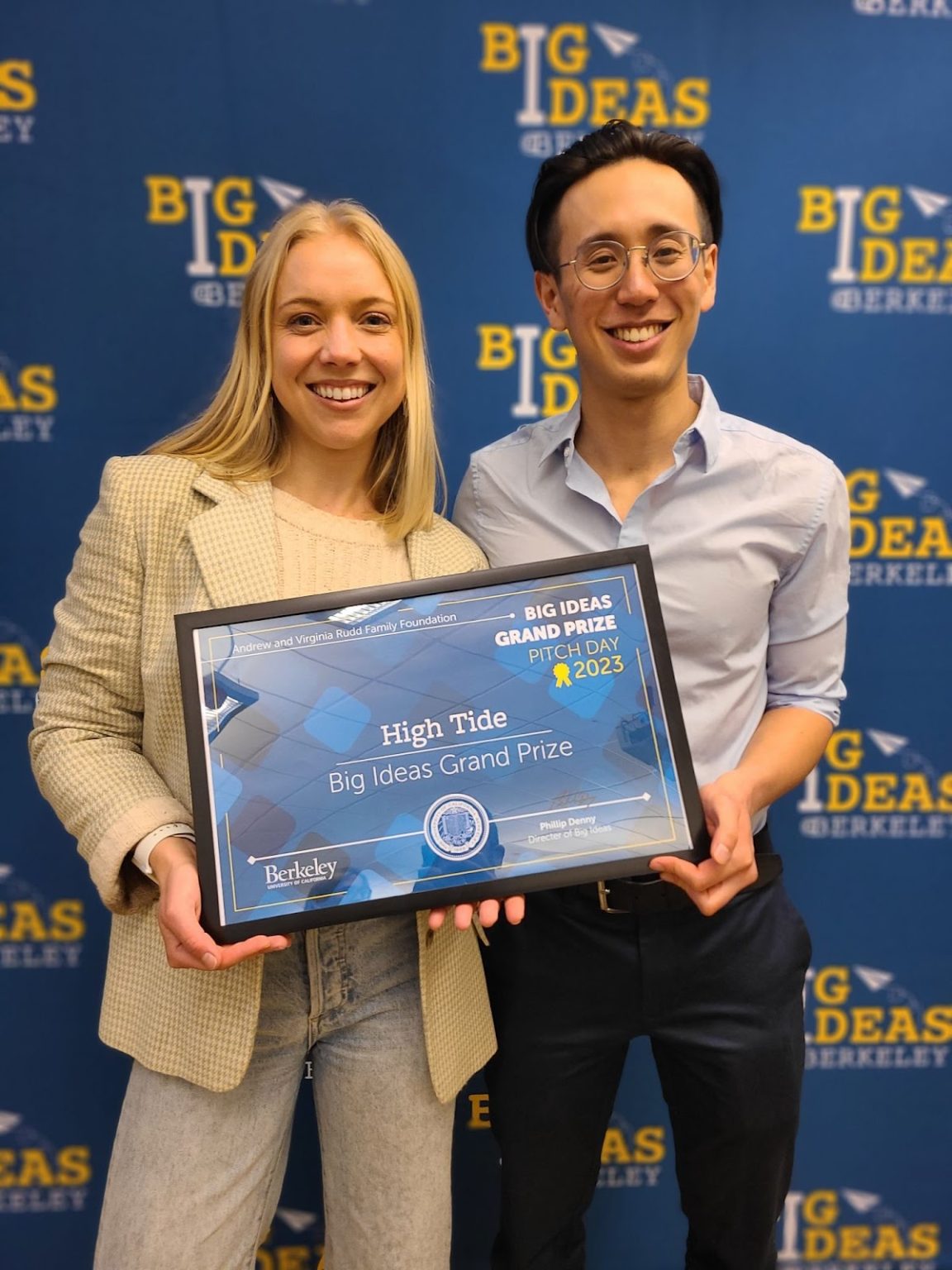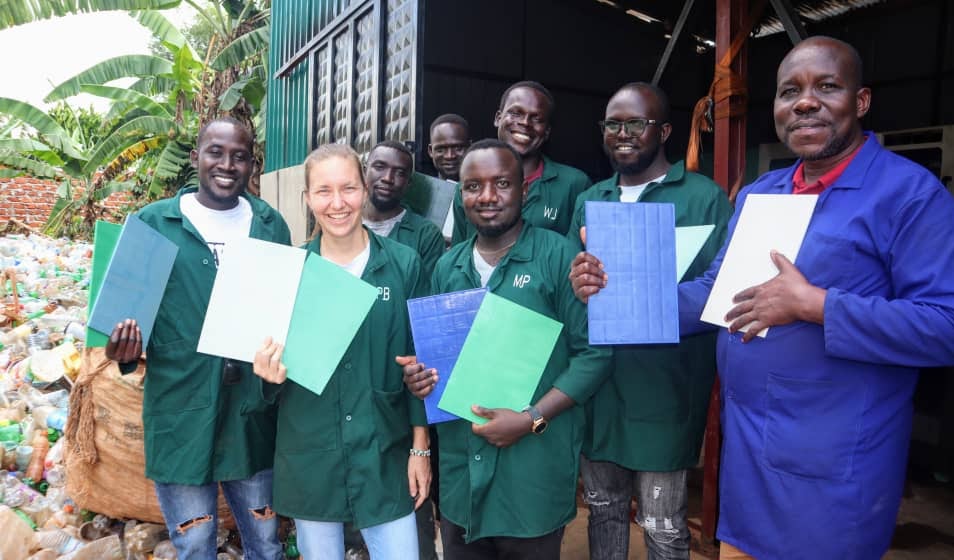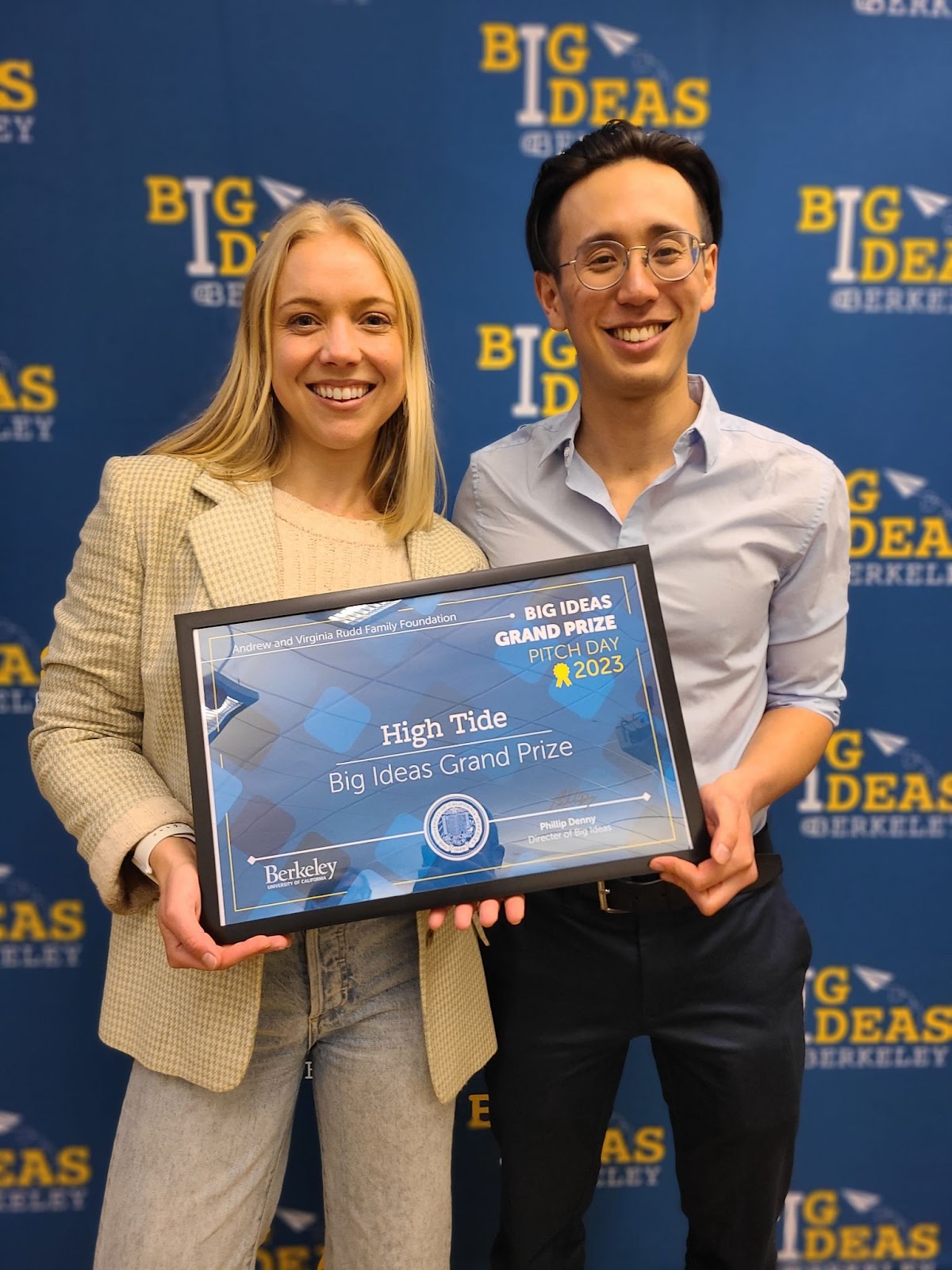
Following months of designing, workshopping, mentoring and pitching, High Tide, a student team working to produce a bio-based coating for compostability and recyclability, took home top honors at the 2023 Grand Prize Pitch Day and Awards Celebration, the Rudd Family Foundation Big Ideas’ annual finale. Judges gave High Tide, one of 23 finalists to appear at the May 3 event at UC Berkeley’s Blum Hall, the $10,000 Grand Prize.
High Tide, led by Ivan Jayapurna, a PhD candidate in Applied Science & Technology focusing on biodegradable plastics and Kira Erickson, MBA candidate, is dedicated to ending the use of plastic-coated paper in single-use containers unable to be composted or recycled. Their solution prioritizes structure over chemicals, using renewable resources to create a water repellent bio-based coating that will harmlessly degrade in natural ecosystems and can safely fall into green and blue waste bins.
“The past few months have been hectic but fun and definitely educational. We got to talk to a lot of experts and I personally learned a lot about the packaging industry and on developing new materials from a commercial perspective. Today was really cool to see it all come together, as well as seeing all the other really cool projects,” said Jayapurna. “Hopefully this big idea can be a small part in helping us achieve a waste free future.”
“The concept behind High Tide was born out of a realization that the majority of our paper products are destined for landfill, despite paper being a compostable and recyclable material,” added Erickson. “It’s an extremely pervasive, yet less widely known issue. The potential for systemic impact is massive if addressed properly. I hope it’s a challenge High Tide can help solve with our nature-inspired solution.”
This year, the Rudd Family Foundation Big Ideas received 160 applications from UC Berkeley students and 30 applications from its partner campus in the UK, the University of Sussex — representing more than 600 students, 60 disciplines, and 15 countries — all aimed at addressing pressing social issues from food insecurity to workforce development to maternal healthcare. Of the final-round teams, over half of the projects were led by women. During the pre-proposal application period, Big Ideas provided students with a wide variety of resources including entrepreneurship skills workshops, team-building development, networking opportunities, and startup advising. Twenty-three finalists emerged from the 190 applications after a review by over 150 experts from academia, industry, and the venture community. These 23 teams continued to receive support and even more personalized mentorship as they prepared a final application. In addition to participating in today’s poster session, 5 of the 23 finalists were also chosen to pitch their innovations to three judges.
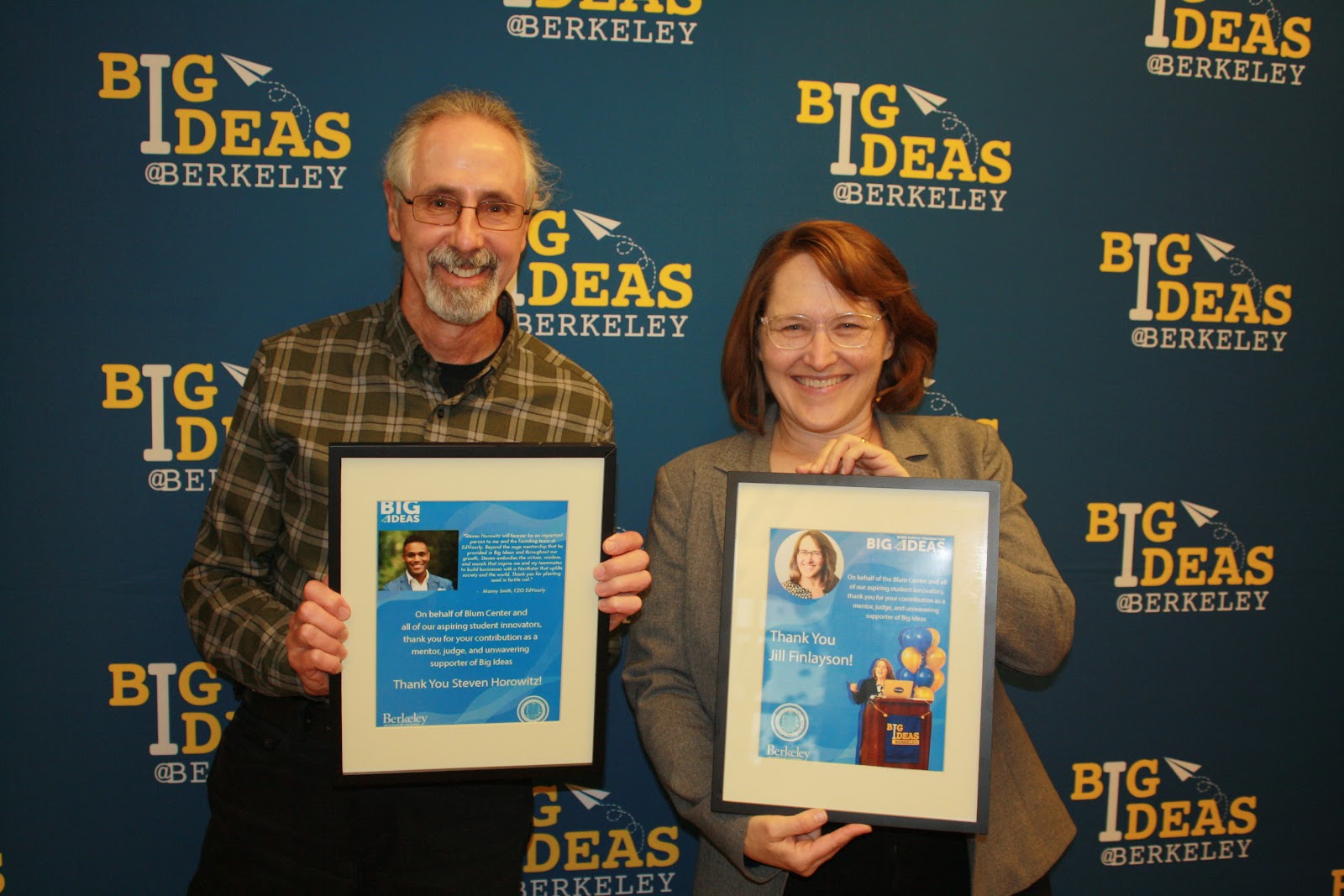
“These finalists are the best of the best of social innovation,” said Jill Finlayson, Managing Director of the CITRIS Innovation Hub and a Big Ideas judge for the last decade. “They could all easily go out in industry and make the next step. But Big Ideas is about making that big leap, pushing boundaries into reality. And that’s where we felt the winning team stood out.”
“It was such a thrill to bring the idea to life with Ivan and with support from our mentors, Tony [Kingsbury], Mathieu [Aguesse], Karenna [Rehorn], and Phillip [Denny],” Erickson said. “We got to meet and learn from many more people along the way as well who inspired us with their dedication to sustainability and generosity with their time.”
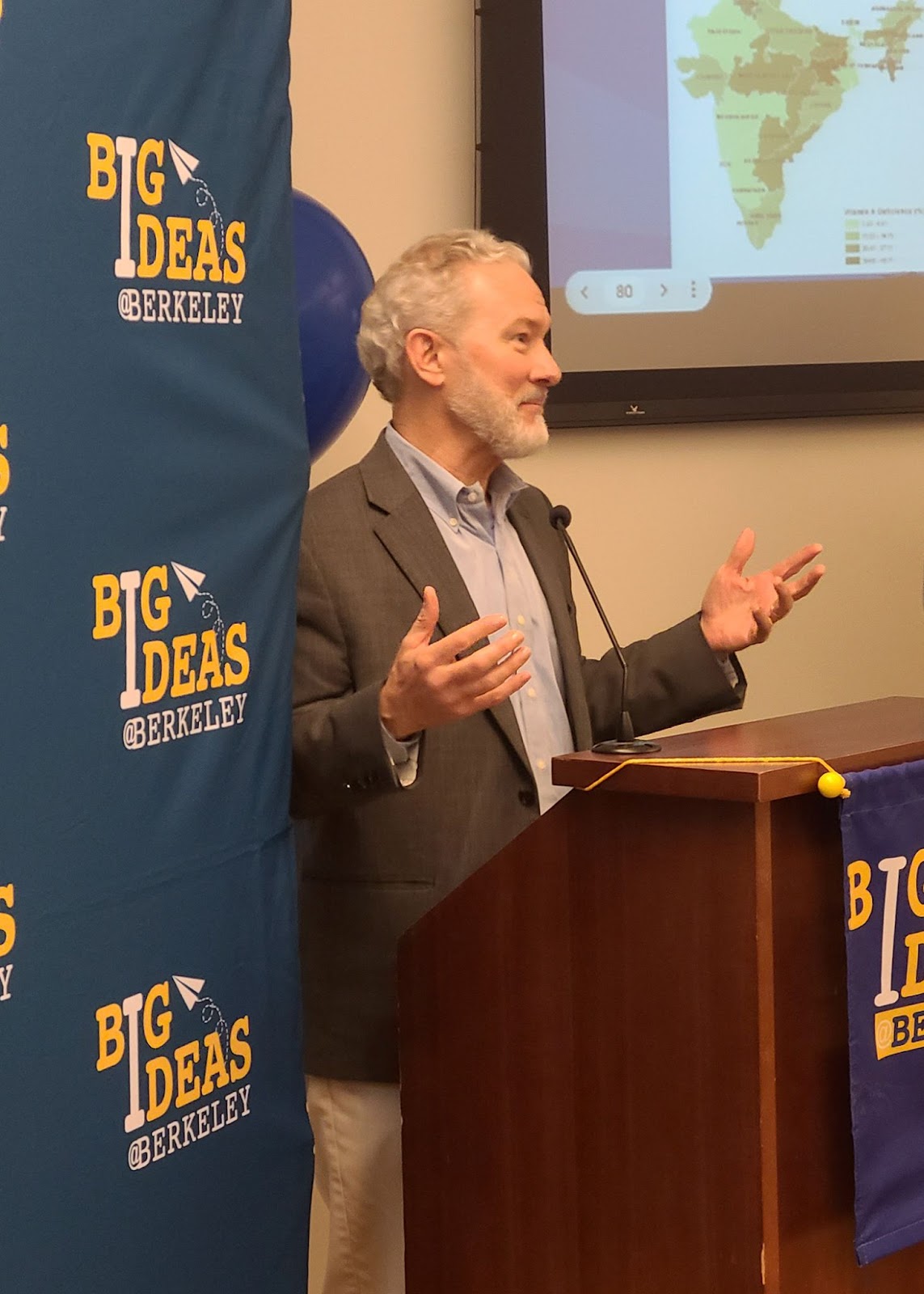
The other headliner of the night was 2ndWind, winner of the Lab for Inclusive FinTech (LIFT) “FinTech for Social Good” Initiative, a parallel Big Ideas track focused on advancing innovations that can unlock the potential of digital financial technologies to benefit underserved populations around the world. The FinTech for Social Good contest is made possible by Binance Charity and Ripple Impact. 2ndWind aims to help small and medium businesses continue even when the owners retire. The project creates an efficient platform to facilitate small and medium businesses in this time of transition, allowing owners to achieve their retirement’s goals, while preventing the layoffs often associated with small business closures.
Another highlight of the evening was when two undergraduate teams were recognized by Rich Lyons, Vice Chancellor of Innovation and Entrepreneurship. Blackprint Technologies and the Potion Project each won the Berkeley Changemaker award.

